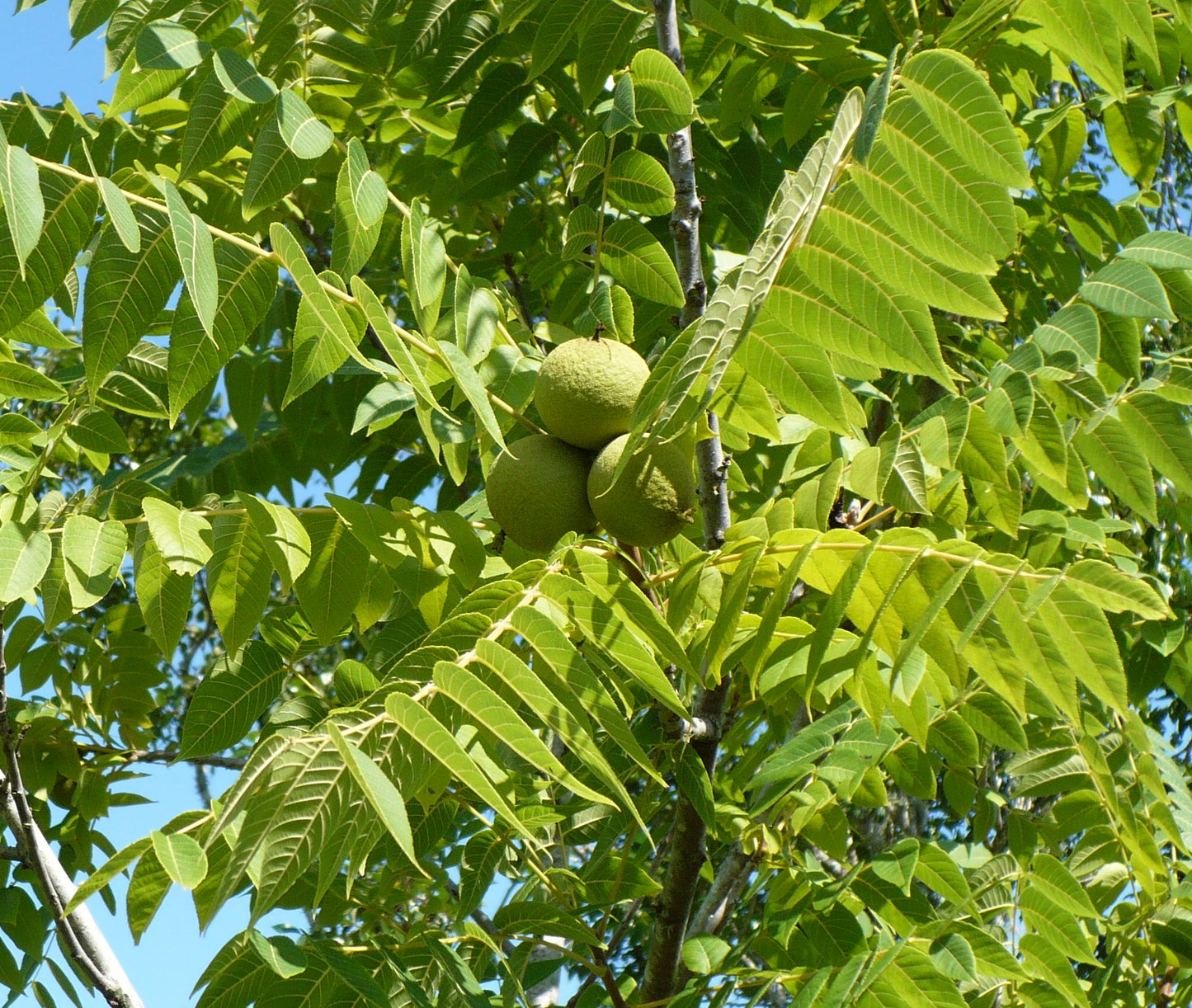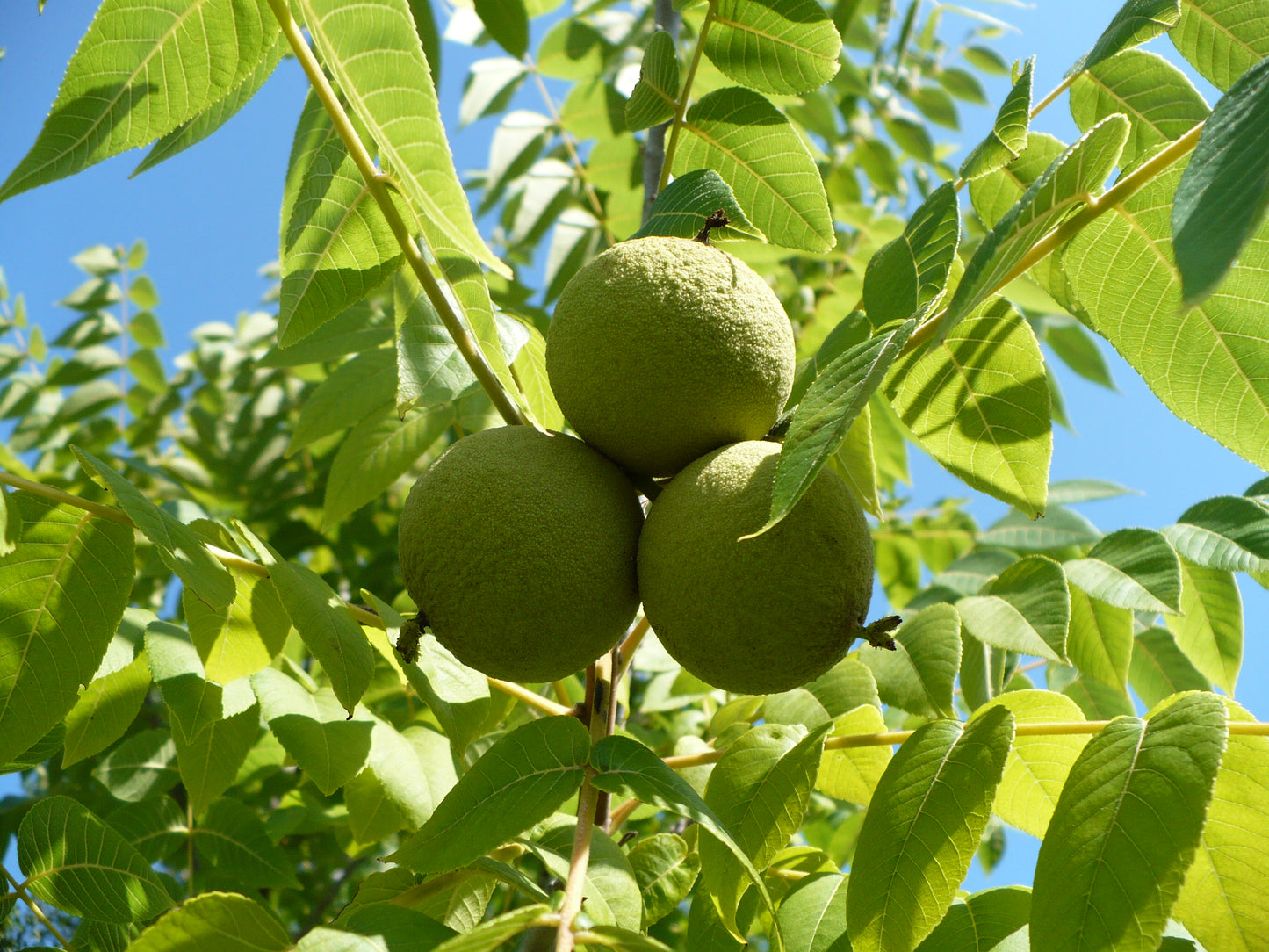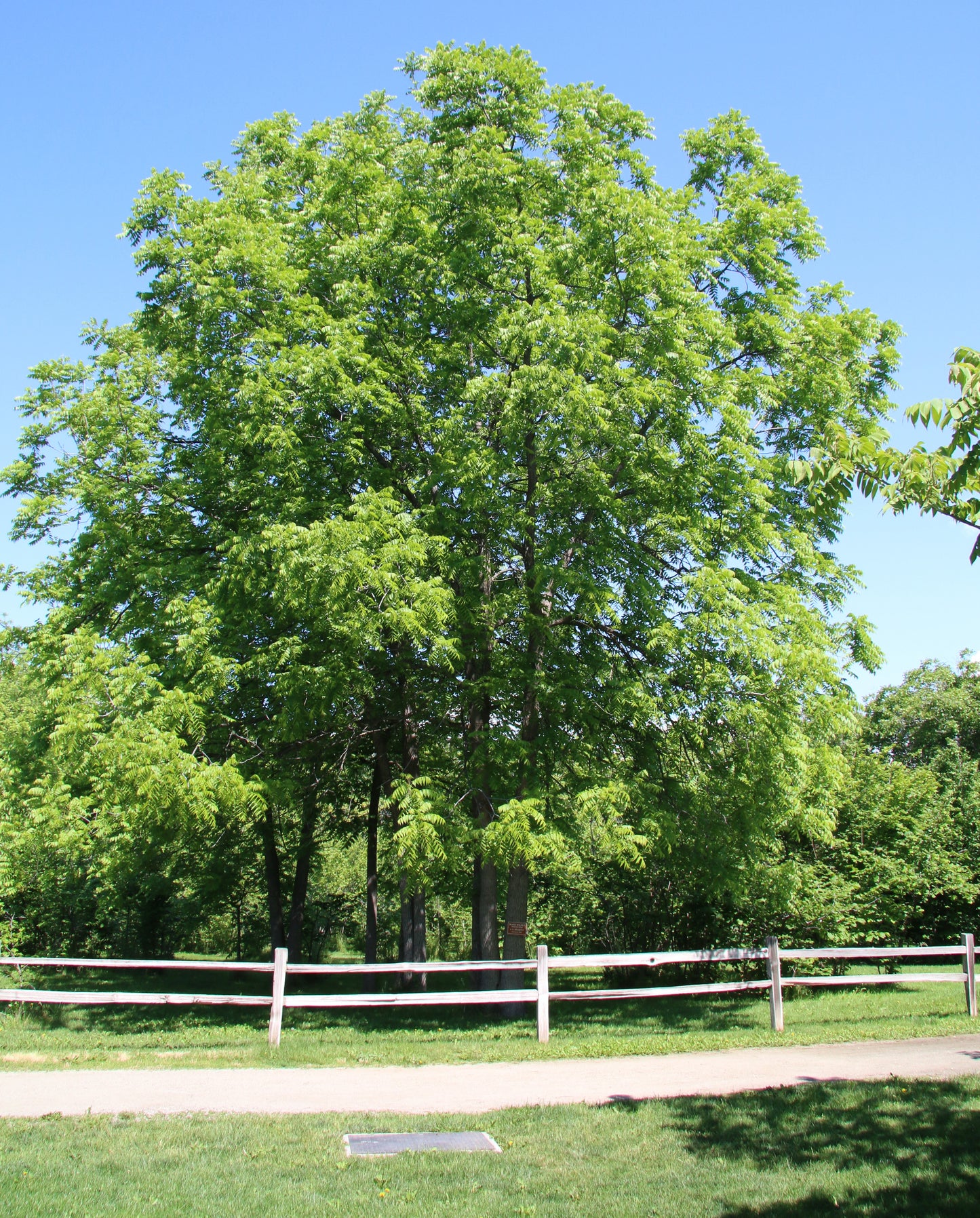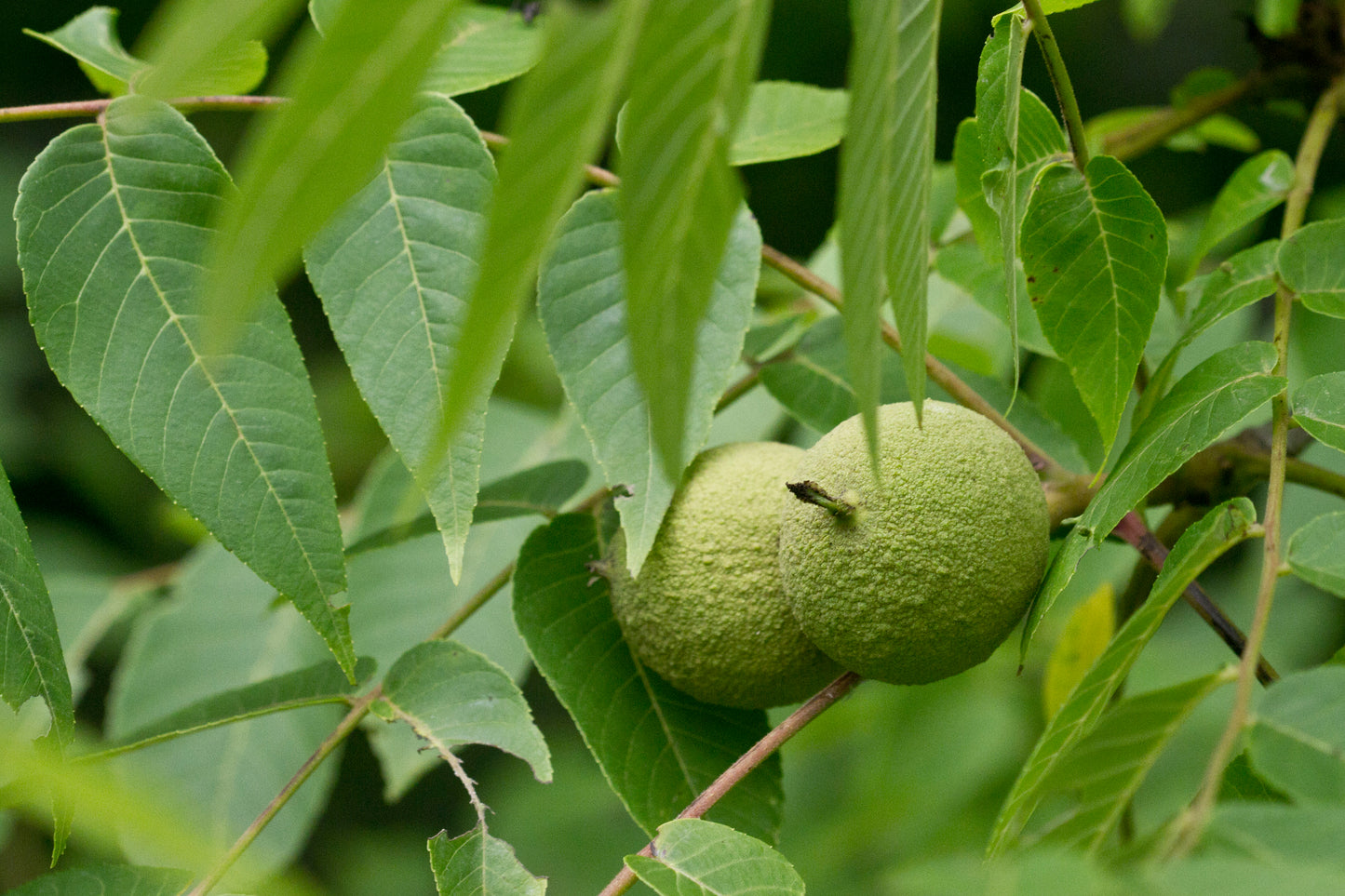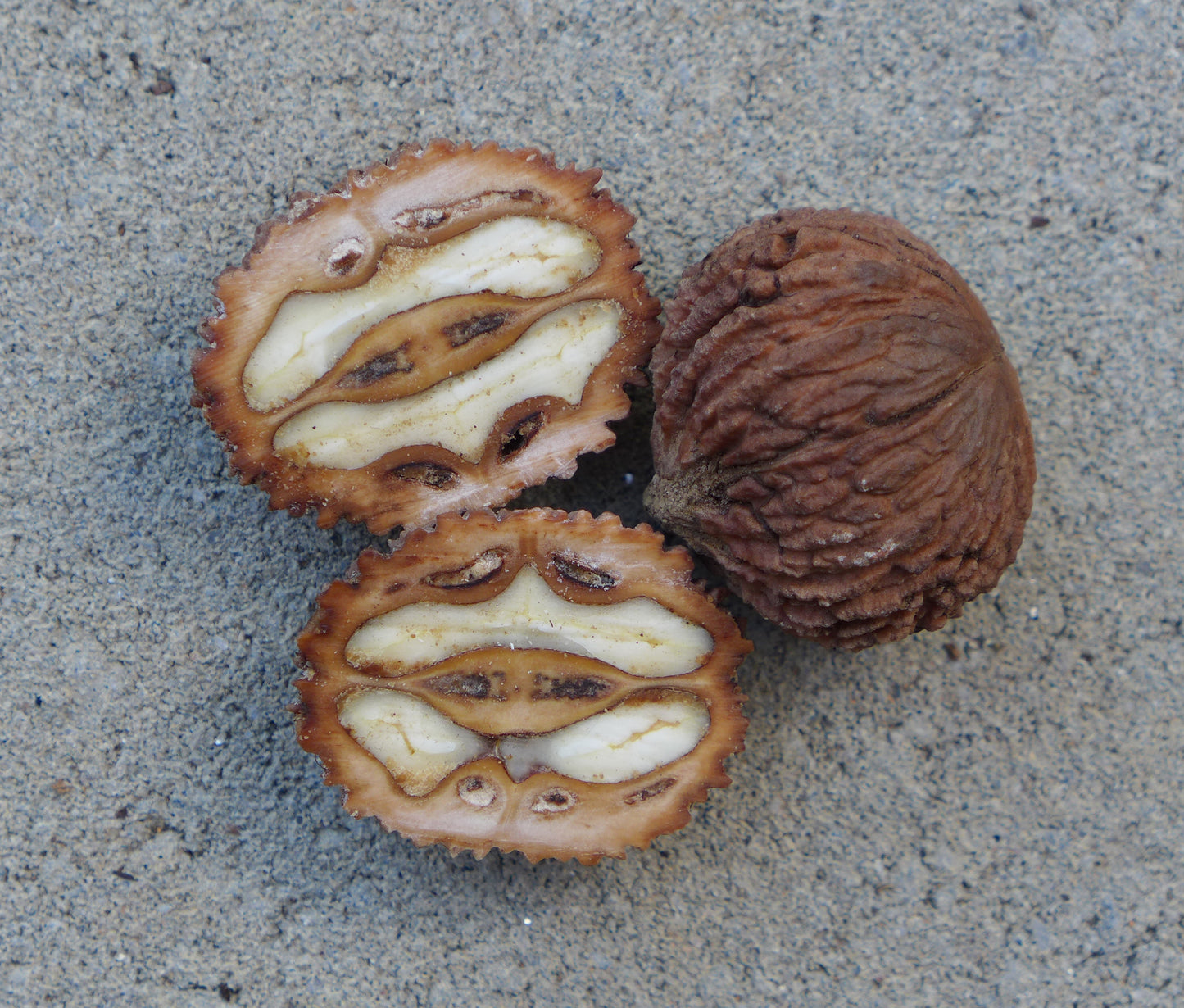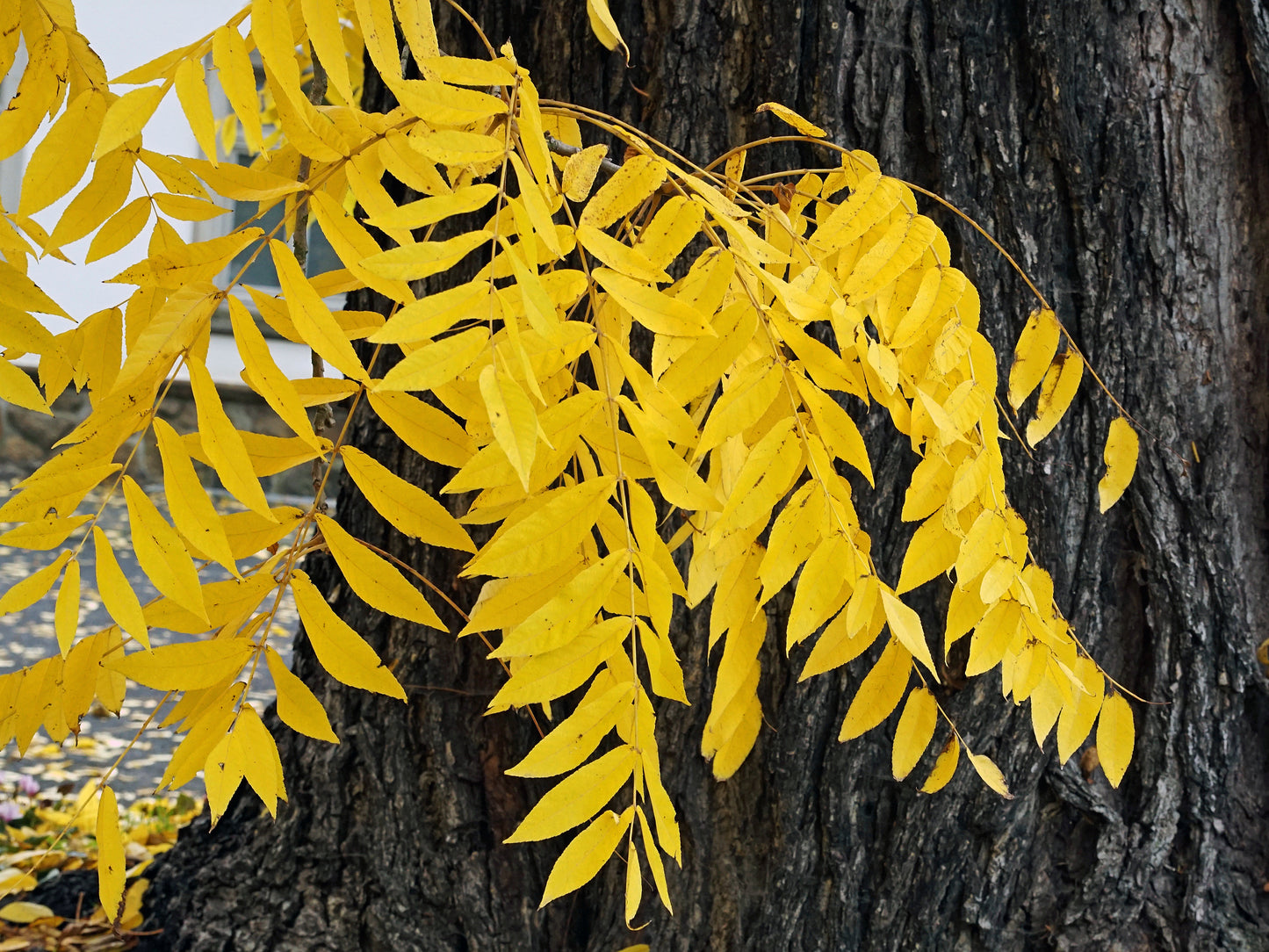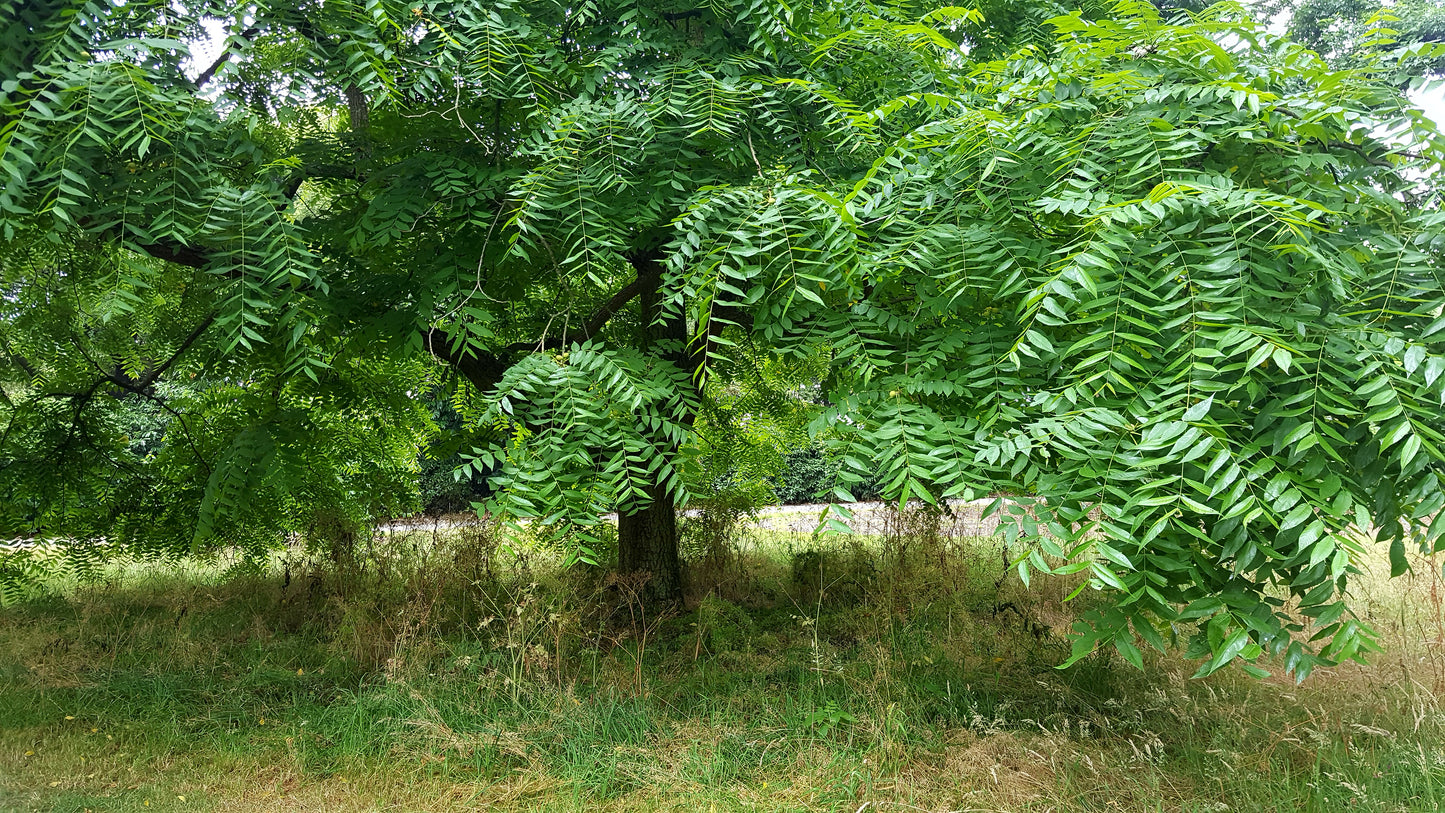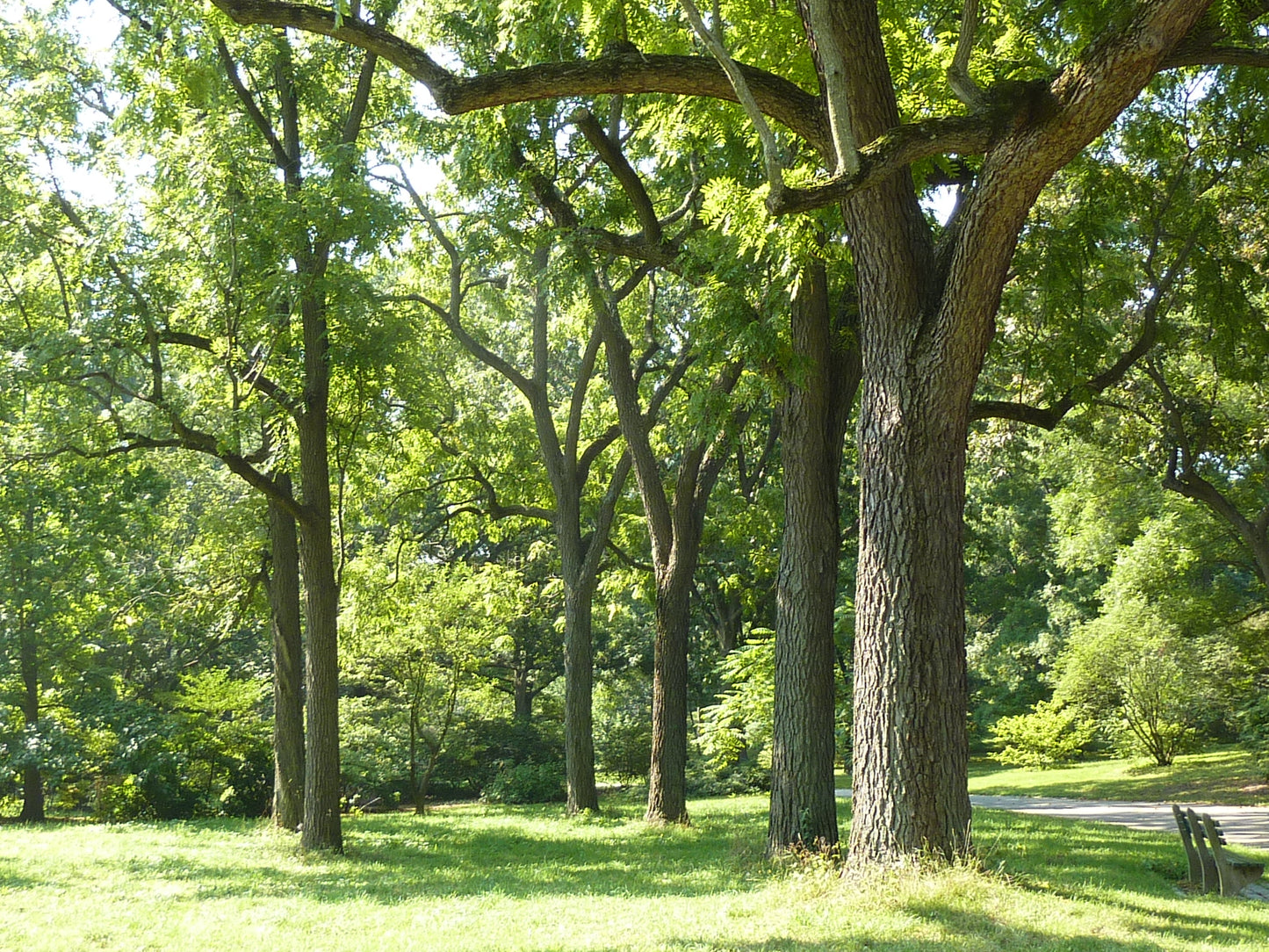Floridaseeds
Black Walnut Juglans nigra 5 Seeds USA Company
Black Walnut Juglans nigra 5 Seeds USA Company
Couldn't load pickup availability
Juglans nigra, commonly known as black walnut, is a species of deciduous tree native to North America, particularly the eastern United States and Canada. It belongs to the Juglandaceae family and is prized for its valuable wood, edible nuts, and ornamental qualities.
Here are some key features of Juglans nigra:
Appearance: Black walnut trees typically grow to a height of 30 to 40 meters (100 to 130 feet) tall, with a trunk diameter of 1 to 2 meters (3 to 6.5 feet). The tree has a straight trunk and an open, spreading canopy. The bark is dark brown to black and deeply furrowed.
Leaves: The leaves of black walnut trees are compound and alternate, consisting of 15 to 23 leaflets arranged in pairs along a central stalk (rachis). Each leaflet is lance-shaped and finely toothed, with a pointed tip. The foliage turns yellow in the fall before dropping.
Fruit: The fruit of the black walnut tree is a rounded, green husk enclosing a hard, wrinkled nut shell. Inside the shell is the edible walnut kernel, which has a rich, buttery flavor. Black walnuts have a strong flavor compared to the more commonly cultivated English walnuts.
Habitat: Black walnut trees are typically found in moist, well-drained soils along stream banks, bottomlands, and forested areas. They prefer deep, fertile soils with adequate moisture but can tolerate a range of soil types.
Wood: The heartwood of black walnut is highly valued for its rich, dark brown color, fine grain, and durability. It is used in a variety of woodworking applications, including furniture, cabinetry, flooring, and gunstocks.
Toxicity: Black walnut trees produce a chemical compound called juglone, which is toxic to some plant species. This allelopathic compound can inhibit the growth of certain plants, so it's important to be mindful of planting other species near black walnut trees. Hardy in zones 4-9.
Growing Instructions
The seeds have a period of dormancy. They can be planted outdoors in the fall or winter for spring germination or they can be cold stratified to simulate winter conditions and to break their dormancy at any time of the year.
Soak the seeds in water for 24 hours.
Put the seeds in a ziplock bag.
Put the bag in the refrigerator and leave it there for 3-4 months.
The seeds like moist, well-drained soil. Prepare a mixture of half potting soil and half sand, perlite or vermiculite. Put the soil in a pot.
Sow the seeds 1-2 inches deep.
Water the soil so that it is moist but not wet.
Put the pot in an area in full sun or part shade. The seeds germinate in 4-6 weeks.
When the seedlings are a few inches tall, they can be transplanted.
Materials
Materials
Shipping & Returns
Shipping & Returns
Dimensions
Dimensions
Care Instructions
Care Instructions
Share
